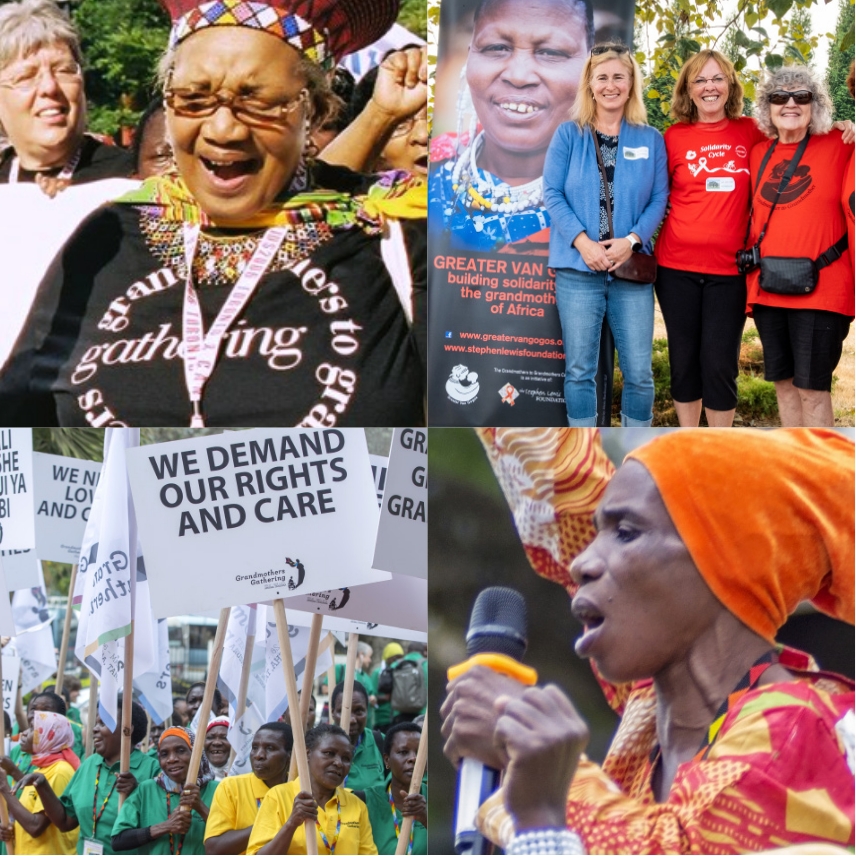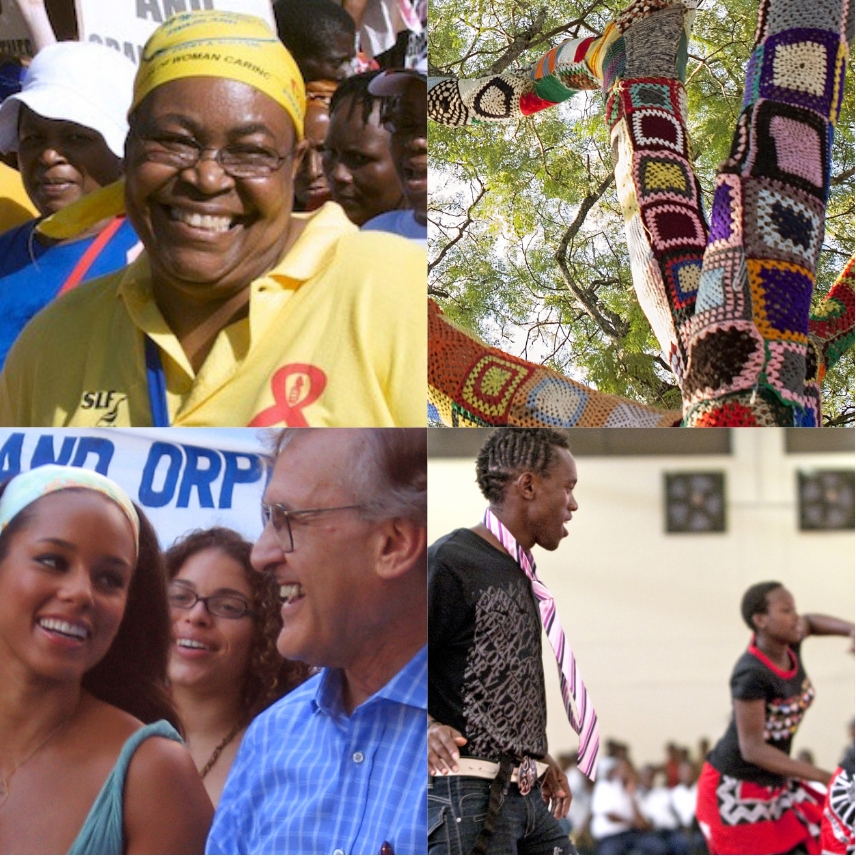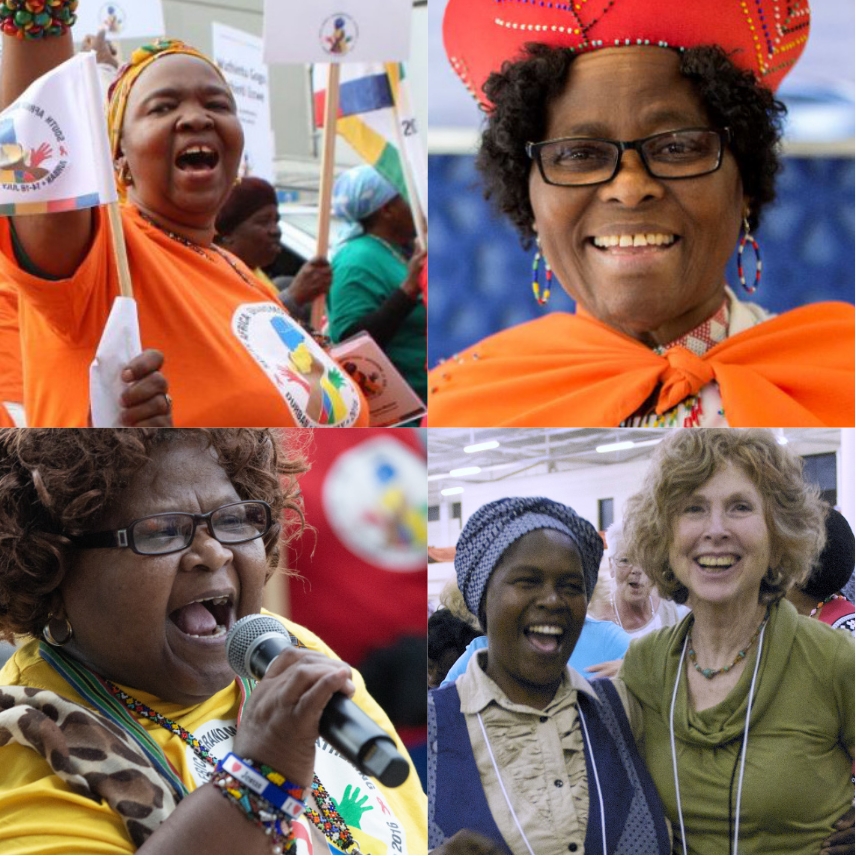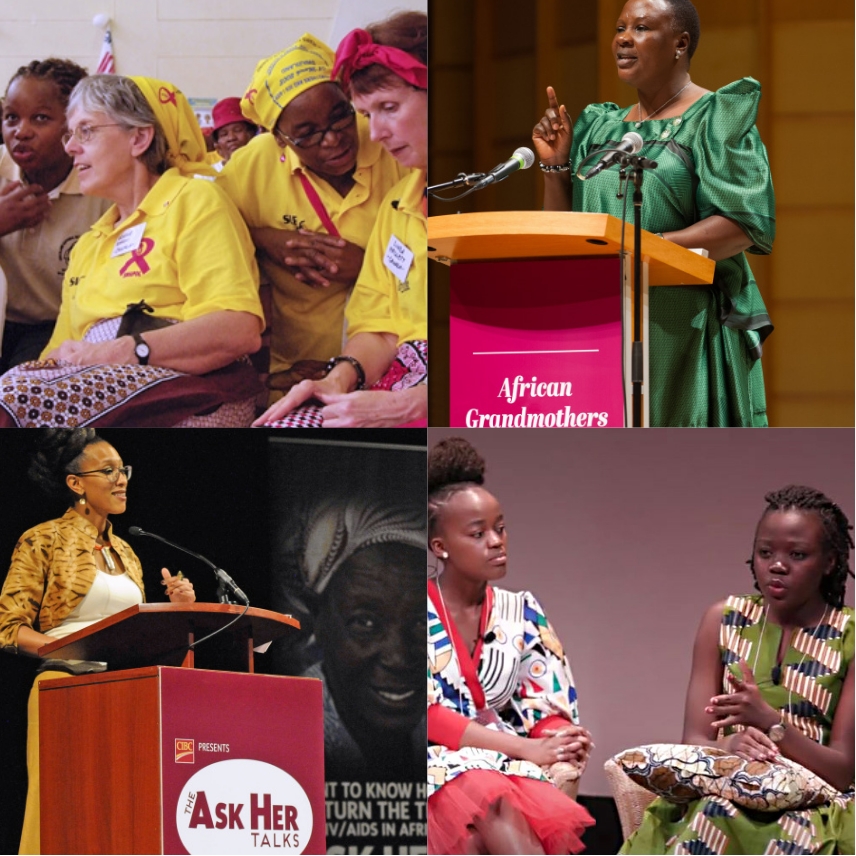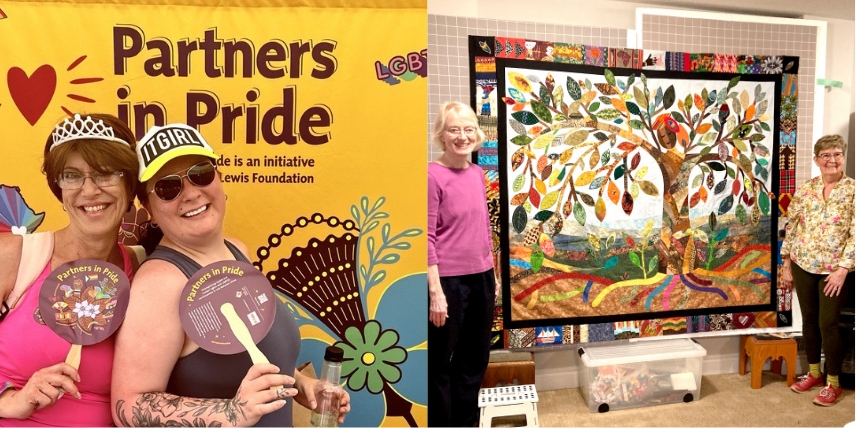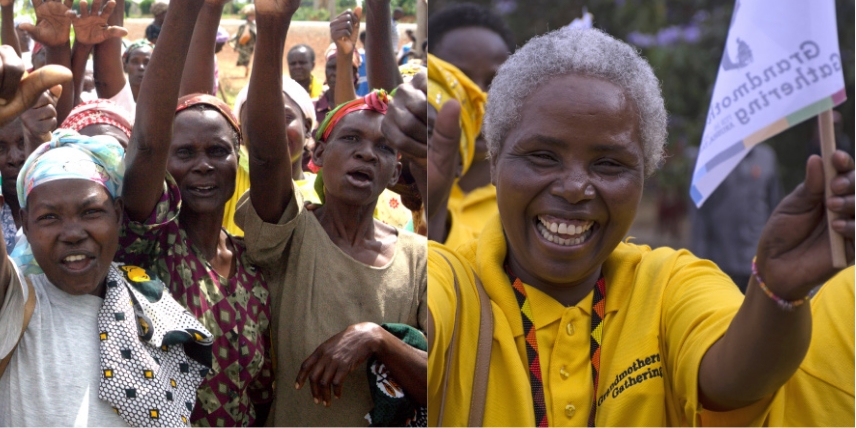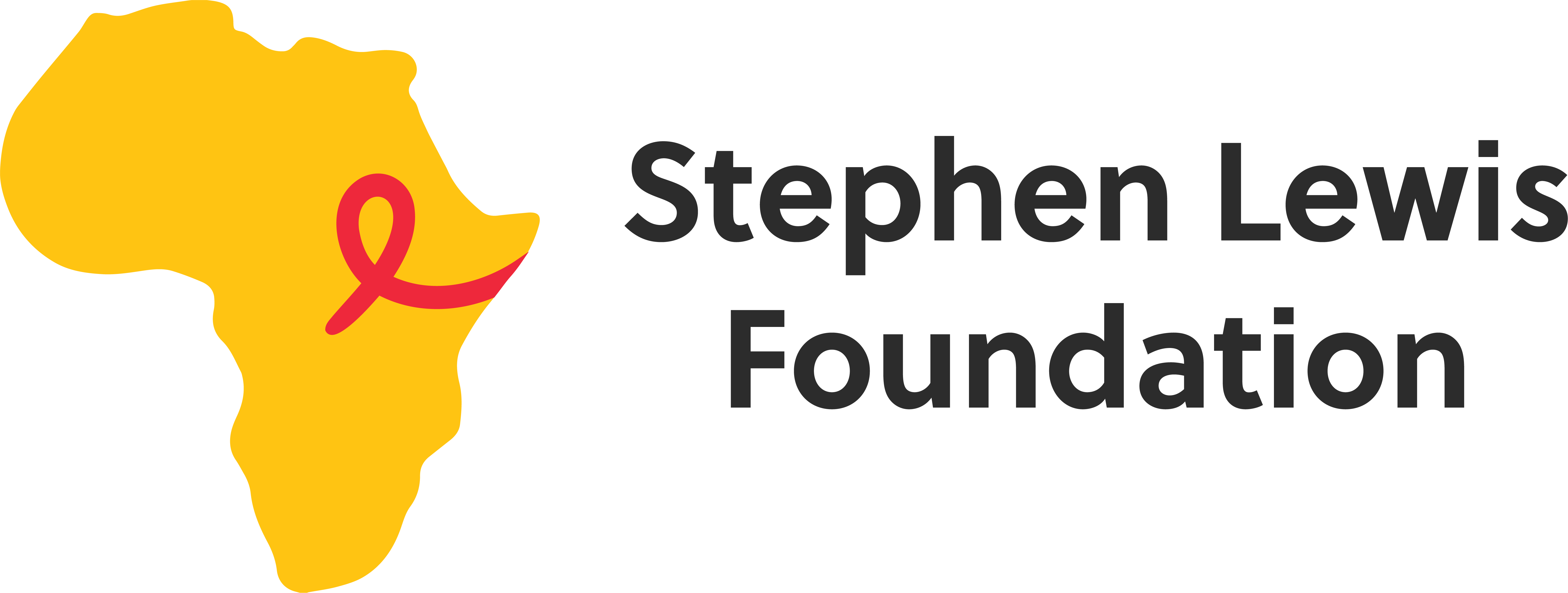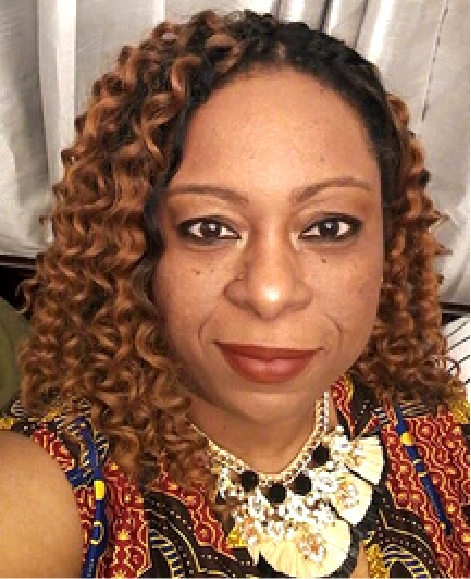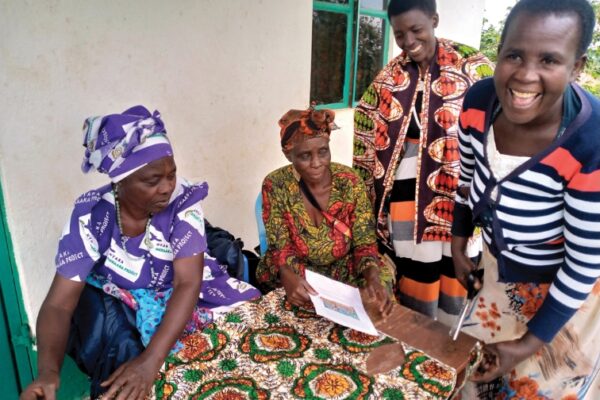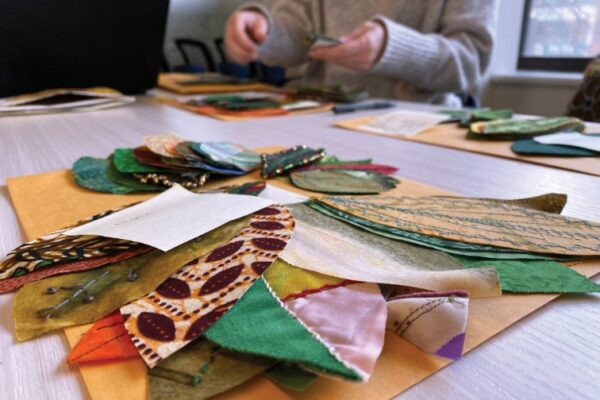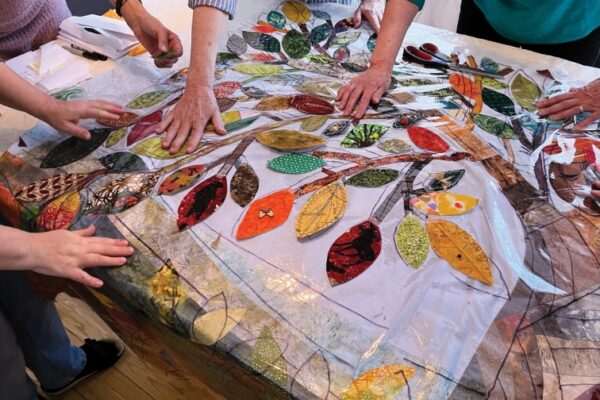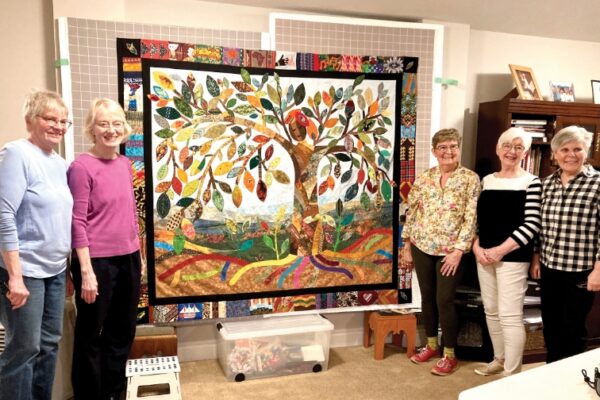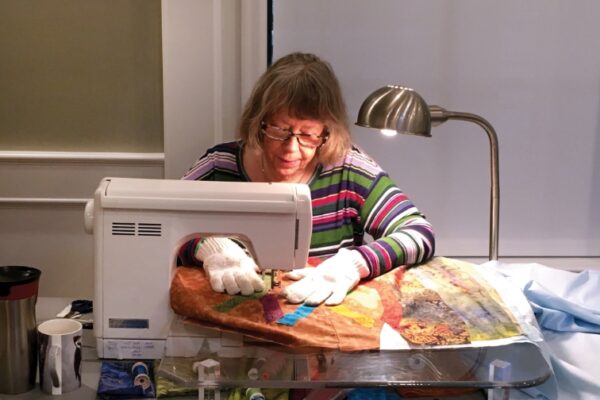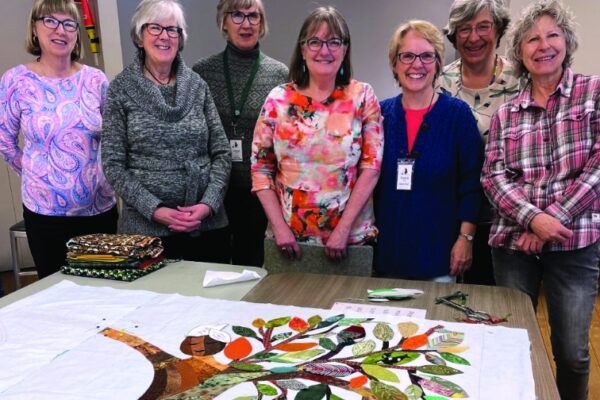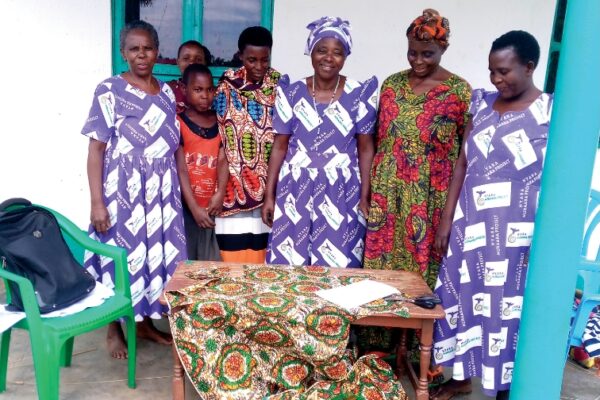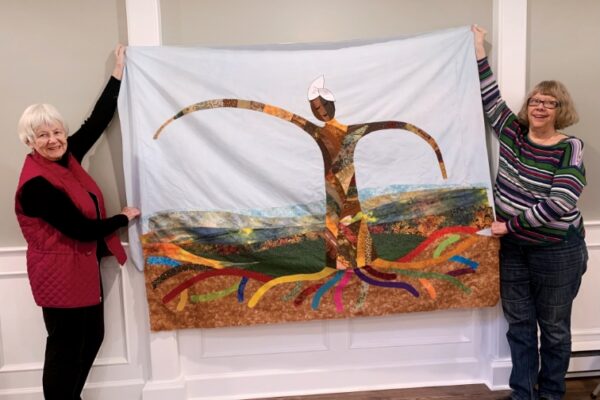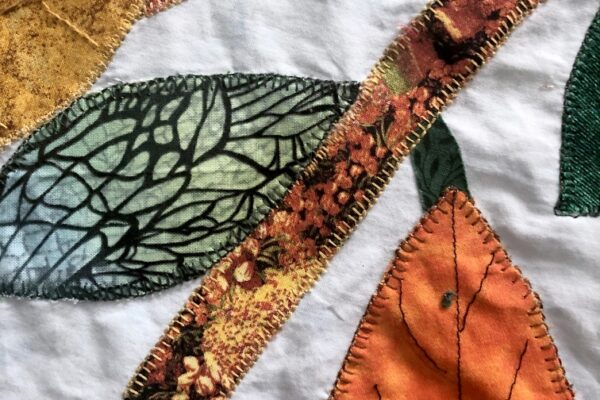Provide gender-responsive health care to women and girls
Spotlight on
Grassroots
SPRING 2023
Photo Credit: Eric Miller
Description: Grandmothers Against Poverty and AIDS (GAPA)
Location: South Africa
SLF partners meet the diverse needs of communities affected by HIV. These organizations work to:
Prioritize mental health and well-being
Advocate for legal and policy changes
Mobilize community outreach and education
Create access to education for HIV-affected children
Deliver home-based care and end-of-life support
Prevent gender-based violence and early and forced marriages
Increase sexual and reproductive health services
Create pathways to economic independence
Experience in the face of adversity
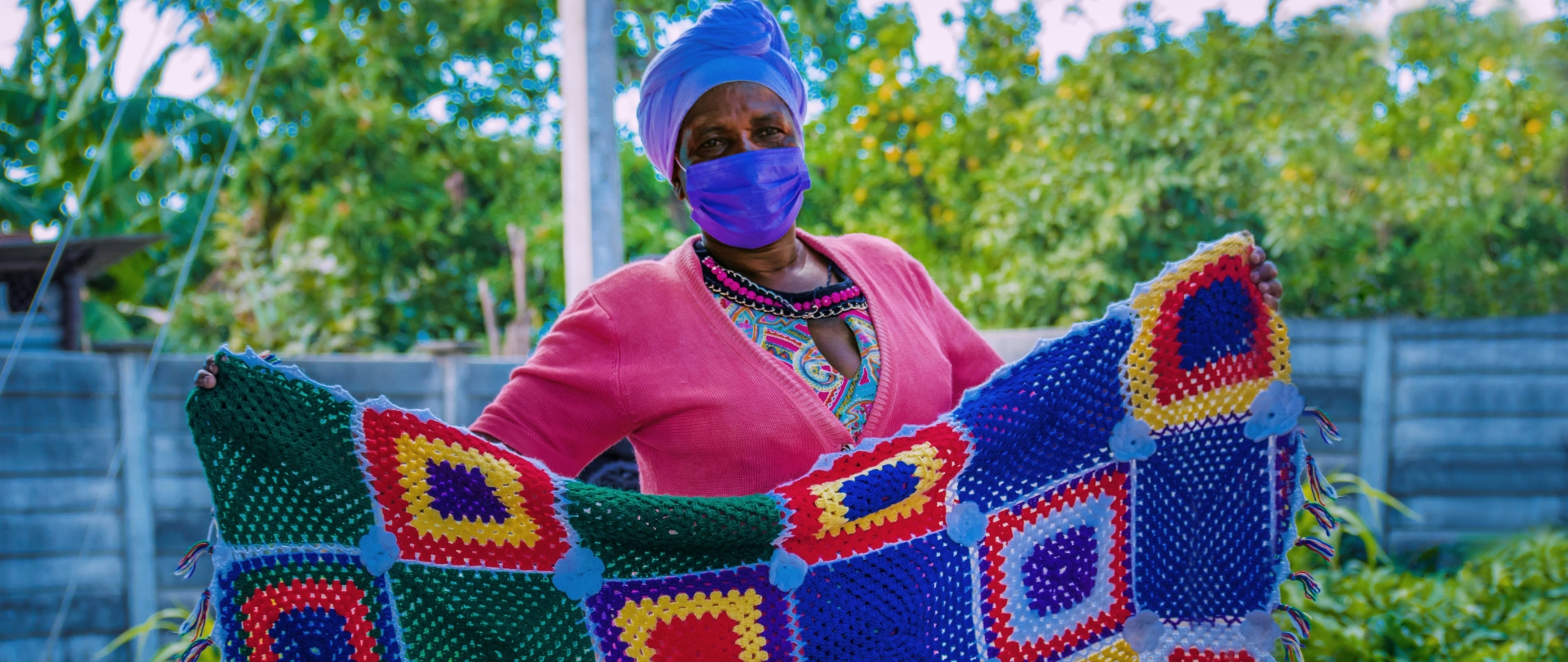
Photo Credit: Siyano Photogrpahy
Description: MASO
Location: Zimbabwe
Over the past year, much of the world’s attention has been focussed on the global economic instability. It is no surprise then, that while the uncertainty has been affecting families across Canada, it has also challenged our partners in sub-Saharan Africa where the economic situation is dire and accelerating poverty is fuelled by high inflation and volatile social and climate conditions.
As they always do in the face of a crisis, SLF partners have been responding to the changing needs of the people they serve. These organizations have longstanding track records of success with communities built on trust and responsiveness. Over the years, they have harnessed the power and potential of the communities they serve to address and overcome many of the challenges brought on by the HIV epidemic. This experience serves them well in today’s uncertain environment.
Midlands AIDS Service Organization (MASO) is one of these organizations. Established in 1991, MASO focusses on empowering grandmothers and their grandchildren, caregivers, and home-based care workers in Zimbabwe. Thanks in large part to many of MASO’s income-generating programs over the years, grandmothers have been better able to provide nutritious food for their families, afford school fees, and generate supplemental income through the sale of vegetables from their gardens. But the current economic upheaval threatens to undermine much of the progress that has been made by grandmothers. MASO recently shared that, “The economic situation in Zimbabwe continues to deteriorate with the alarming rate of inflation eroding grannies’ savings. Prices for basic goods are increasing and this has increased the cost of living.”
In response, MASO is continuing to strengthen grandmother groups and provide them training for small and medium sized businesses. Grandmothers have found an outlet for sharing challenges, developing and strengthening income-generating activities, feeling empowered, facing stress, caring for children and voicing their concerns to the government.
The needs of communities are great, but with sufficient support so is the potential. The SLF is committed to continuing our long-term flexible partnerships with organizations like MASO. The current economic uncertainty, together with the ongoing decline in funding for HIV and AIDS affected communities, means that your support is welcomed and critical. We cannot let the challenges of today cause us to lose the progress we’ve made in the fight against AIDS.
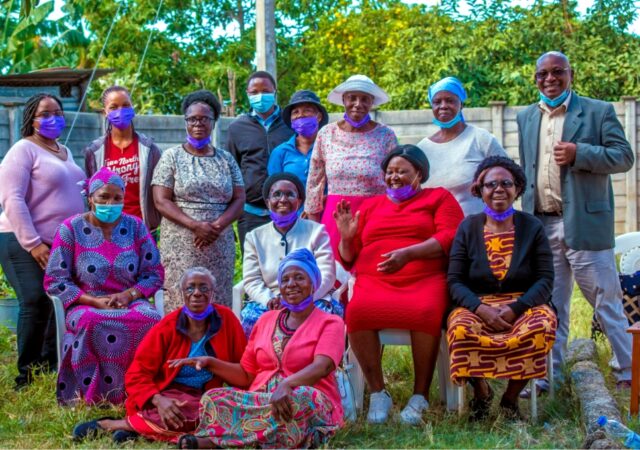
Photo Credit: Siyano Photogrpahy
Description: MASO
Location: Zimbabwe
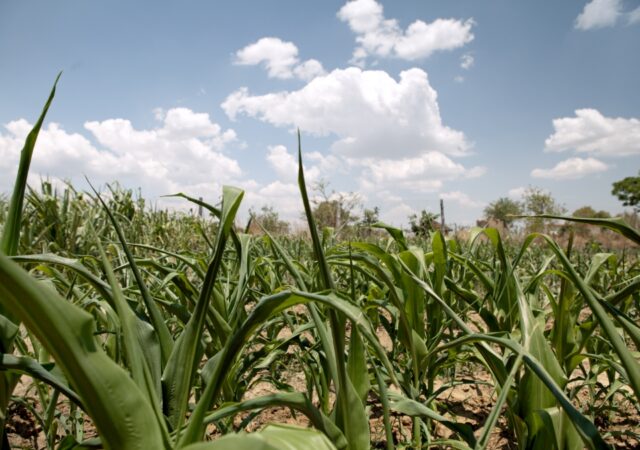
Fighting for human rights in East Africa

It was June 27, 1969, when Canada amended the criminal code to decriminalize homosexuality, and in the decades since, sexual orientation has been included in the country’s human rights acts, and same sex marriage has been made legal. And while there is still work to be done, and we must remain vigilant, Canada is consistently ranked one of the safest countries for members of LGBTIQ communities.
At the same time, in many countries around the world LGBTIQ communities are struggling under ongoing violations of their human rights. In recent months, SLF partners have faced increasing threats of violence, as they are confronted with rising anti-LGBTIQ sentiment, movements, and legislation, including in Uganda and Kenya.
Uganda is at the epicentre of some of the harshest attacks on human rights, as parliament recently passed an anti-homosexuality bill, which if signed by the President would lead to jail sentences for members of LGBTIQ communities and even those who support them. The bill has had devastating impacts on the SLF’s partners, including Icebreakers Uganda (IBU), an organization that provides health care services and research and documentation for LGBTIQ communities.
“You wake up one day and you don’t know what will happen,” says Luswata Brant, Executive Director of IBU. He explained that practically overnight the organization has had to scale down, engage 24-hour security, minimize time spent by staff at their offices, and even close their safe houses. Client numbers are on the decline because members of LGBTIQ communities are afraid of being caught in raids by police or attacked by vigilante mobs.
IBU has altered their programming swiftly, including changing their methods of service to meet clients in other, more discreet locations. Even with these changes, Brant remains worried that clients living with HIV, who fear being associated with IBU’s services, will not continue their regular antiretroviral therapy which is needed for the virus to be both undetectable and untransmissable. It threatens the hard-fought gains made in response to the HIV epidemic in Uganda as a whole.
“We’ve seen some of our clients living with HIV going back in the closet saying: ‘What if I enter Icebreakers Uganda and then they raid and arrest me?’” says Brant, adding that some clients have resorted to the dangerous practice of self-monitoring and adapting their treatment without the support of a health worker.
The environment they are working in puts an incredible strain on staff and LGBTIQ activists and leaders, who are also victims of violence. “The mental health challenges for both our staff members and our clients are high,” says Brant.
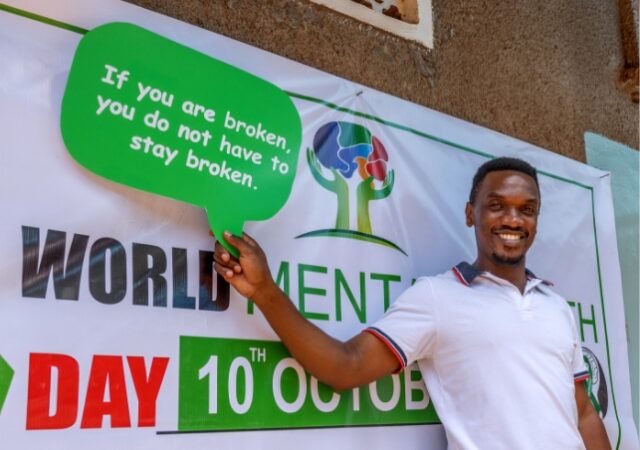
Photo Credit: Sofi Lundin
Description: IBU
Location: Uganda
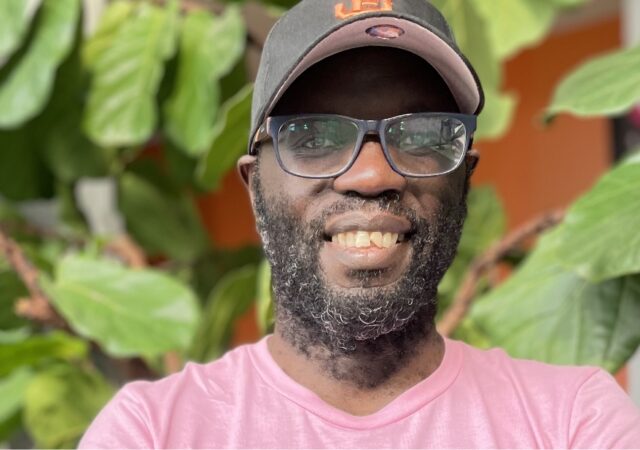
Photo Credit: SLF
Description: IBU
Location: Canada
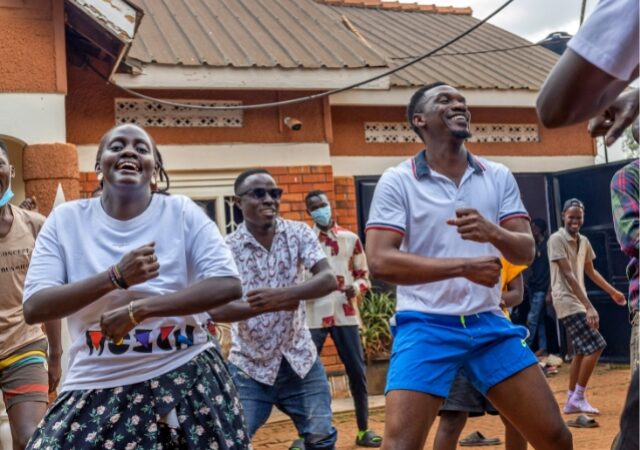
Photo Credit: SLF
Description: IBU
Location: Canada
Last fall, to mark the Foundation’s 20th anniversary, an enthusiastic group of grandmothers assembled with a mission to tell the story of grandmothers’ responses to the HIV epidemic over the past two decades. Their focus was on the resolve of grandmothers on the African continent to raise the future generation of their communities, and the determination of Grandmothers to Grandmothers Campaign members in Canada, the U.K. and Australia, to mobilize funds and awareness in solidarity. The medium chosen to tell this story: a quilt.
When asked if a mock-up design of a grandmother tree could be transformed into a queen-sized quilt using hundreds of pieces of fabric contributed by grandmothers across continents, the answer from a Grandmothers to Grandmothers Campaign member was a resounding “Yes.” Perhaps this confidence was rooted in the certainty that together, grandmothers always forge a way forward.
The art form works particularly well to illustrate the power of individual grandmothers taking collective action and the resulting movement for social justice. The finished quilt will be a symbol of the role grandmothers play in the fabric of their communities and their families, and how they come together to strengthen one another.
With the launch of the quilt project, grandmothers in Canada and throughout the African continent answered the call to craft a piece of the quilt. The beauty of their work is not just in the cut of the fabric, but in the poignant tales imbued in those few square inches.
The contribution from grandmothers of Farm Orphan Support Trust (FOST), a community-led organization in Zimbabwe, for example, depicts a leaf from the Mutamba tree that grows in dry and arid places. Quilters from FOST explain,
“The Mutamba tree belongs to everyone and may not be chopped down. The leaf is a representation of the grandmothers in our Zimbabwean communities. They have been the life support of communities by taking care of children orphaned by AIDS. Grandmothers are at the centre of kinship care, supporting children by fending for them and providing essential services for their well-being.”
As it has come together, the quilt displays a brilliant array of textures, colours and patterns, each carefully chosen by quilters to convey their personalized messages. Staff from Nyaka, an SLF partner in Uganda shared, “Grandmothers used a traditional kitenge fabric that is common and stylish among the grannies. They used one of the longest surviving fabric designs in Uganda, and a design and fashion that the grannies thought had lasted long and would depict the lasting love they had for their grandchildren.”
The feat of assembling a large quilt by teams of grandmothers in 10 cities across seven provinces could have been daunting, but grandmothers eagerly and gleefully banded together to host quilting parties, and shared tips and words of affirmation over video calls. For many groups, gathering to sew the quilt was a return to in-person activities. The atmosphere was joyful, and everyone had a role to play regardless of quilting experience.
We can’t think of a better way to commemorate 20 years of building a movement together as we look toward the future.
Over the next year, there will be many opportunities to see the finished quilt as it travels across Canada. Keep an eye out for upcoming events near you!
Mariam Mulindwa is an inspiration to everyone who knows her. As a proud long-time member of SLF partner Phoebe Education Fund for Orphans & Vulnerable Children (PEFO) in Uganda, Mariam maintains that it is the experiences of her life that have led to her determination to be a leader in her community and to bring strength and hope to other grandmothers.
Like far too many others, Mariam’s family has suffered immensely from the effects of HIV and AIDS. Mariam shares, “I lost my two sisters, and they left behind a total of eight orphaned children. My older sister was the main breadwinner for our family. Our standard of living went down so much when we lost her.
“I had to drop out of school because we were struggling to survive. We needed more security and support, and so I opted to get married at 19 years of age. Our home was like an orphanage — with so many orphaned children from my family and from his.”
As the children grew, and despite her best efforts, Mariam could not afford the fees to ensure the children were consistently enrolled at school. Education is a critical pathway for young women to gain important self-reliance, empowerment and personal agency. As a result of the gaps in schooling, some of the girls in her care became mothers at a very early age, which Mariam says she deeply regrets. Although she loves being a grandmother, she wanted better for both her children and grandchildren — a dream that she has not given up on.
Mariam sought out support from PEFO where she also learned how to counsel and mobilize other grandmothers — encouraging them to have hope and to feel supported. It is a skill to reach out to grandmothers who are grieving and isolated, to help them feel better, understand their rights, their health care entitlements and to access government program. Something that she is particularly proud of is learning how to educate other grandmothers about the importance of creating a will. “I feel very good about this. In the beginning, they were fearful. Now they have changed their minds, and it is important, because it means their children will be safe to inherit.
“I know the work is not finished yet, and that there is more to be done. I also know that other grandmothers take strength and hope from coming together, and from seeing me in a role of leadership in the community. So I feel proud and happy to know that my people are being served.”
We celebrate the resilience and advocacy of women like Mariam and other grandmothers that SLF funding has helped support over the last 20 years.
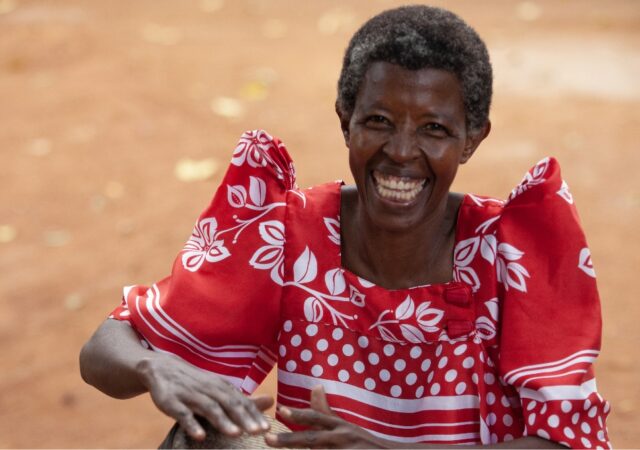
Photo Credit: PEFO
Description: Mariam Mulindwa
Location: Uganda
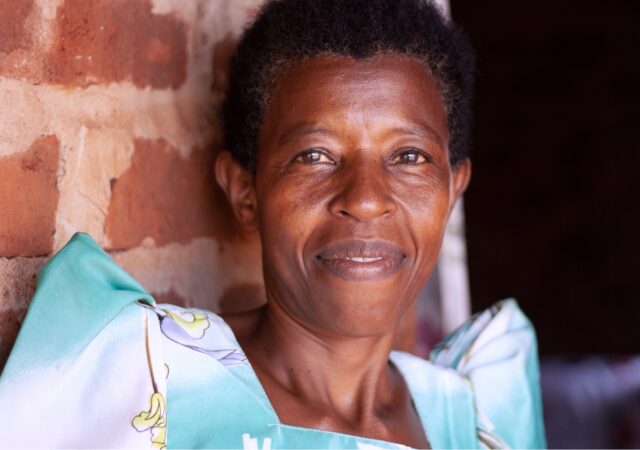
Photo Credit: PEFO
Description: Mariam Mulindwa
Location: Uganda
Dear SLF supporters,
Over the years, we have learned much from our partners about the role anti-colonial approaches to funding can play in supporting organizations to generate transformative change in their communities.
As a part of the SLF’s 2021–2024 strategic plan, we committed to co-championing the power of progressive partnerships with community-led organizations by advocating for systemic change in philanthropic and international development sectors. By leveraging our 20-year track record, our partners’ expertise and the solidarity of likeminded supporters like you, we strongly believe we can achieve our collective goals of more and better financial resources into the hands of community-led organizations. We also recognize our role in amplifying and making space for the voices of our partners within the HIV movement and in supporting their own national, regional, and international advocacy priorities.
The SLF’s advocacy work is a natural evolution of our organizational mandate. By working to influence and shape global health, HIV and AIDS, and development policies, we are using our platform to ensure communities are prioritized in the HIV response.
In setting our advocacy agenda, we are being thoughtful and strategic about where our voice and experience will have the greatest impact. And we are building relationships with other organizations and networks that have similar goals so that we can support one another and build power together. We hope that you see your values reflected in this important work and that you will continue to help shift power into the hands of communities.
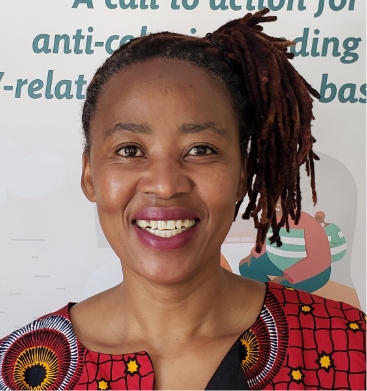
Vuyiseka Dubula
Lead, African Advocacy
and Partnerships
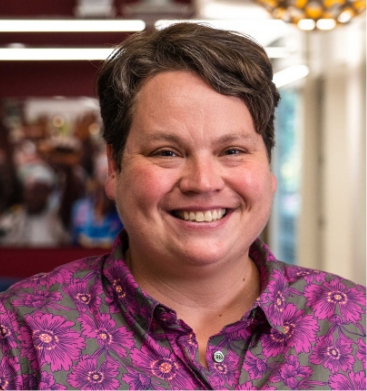
Healy Thompson
Senior Manager, Advocacy
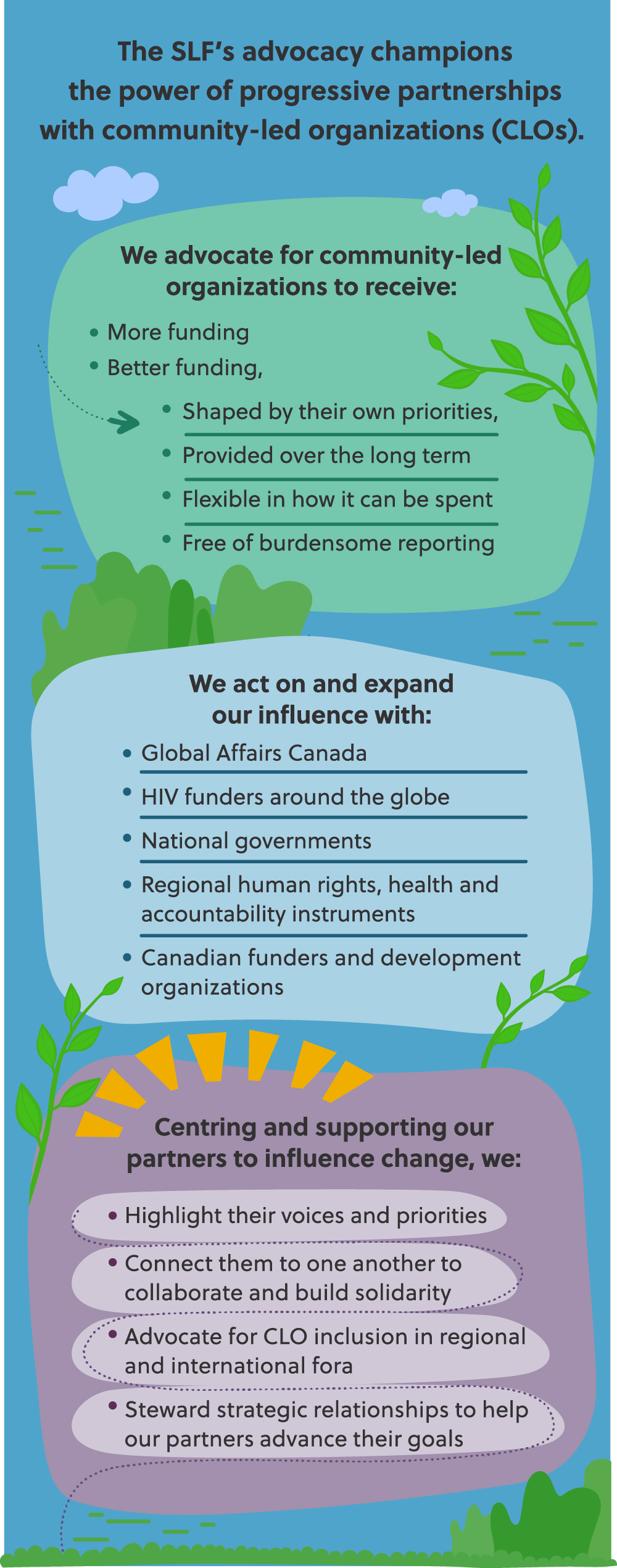
The SLF’s advocacy champions the power of progressive partnerships with community-led organizations (CLOs).
We advocate for community-led organizations to receive: More funding, Better funding, Shaped by their own priorities, Provided over the long term Flexible in how it can be spent Free of burdensome reporting
We act on and expand our influence with: Global Affairs Canada, HIV funders around the globe, National governments, Regional human rights, health and accountability instruments, Canadian funders and development organizations
Centring and supporting our partners to influence change, we: Highlight their voices and priorities, Connect them to one another to collaborate and build solidarity, Advocate for CLO inclusion in regional and international fora, Steward strategic relationships to help our partners advance their goals
Celebrating 20 Years of
the Stephen Lewis Foundation

